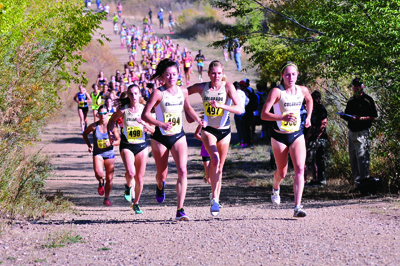Jul 19, 2018Time To Eat
What athletes eat is important. When they eat is just as important. In working with distance runners at the University of Colorado, I spend a lot of time advising them on what to consume before, during, and after practice.
I suggest they eat two-and-a-half to three hours before practice to top off glycogen stores (carbohydrate stores in the body) and prevent hunger during training. The foods I recommend are often the same — lean protein and healthy fat, with both LED CHO and HED CHO — but the portion size of each should depend on where the runner is in their training cycle, the volume of training, and what specific body composition goals they are pursuing.
For example, the team typically does their toughest training on Tuesdays, Thursdays, and Sundays. These sessions require more diligent pre-practice nutrition planning, so I recommend athletes increase their amount of HED CHO to support the higher usage of glycogen in the intense practices.
Pre-practice fueling also depends on what athletes can personally tolerate. Some runners have to be mindful of what they consume before training due to the potential for gastrointestinal distress. A sample Fueling Station menu might include grilled chicken or steak, grilled zucchini, and a baked potato or quinoa. But if those foods will not sit well with a runner, they may opt to make a sandwich with deli meat or have the grilled chicken with a side salad and a piece of fruit.
During training, if athletes have practiced adequate fueling and are well-hydrated, consuming water and/or an electrolyte replacement drink for salty sweaters should be sufficient to keep them going. I often encourage athletes to weigh themselves before and after a practice to get an accurate sense of how well they are hydrating while running, as well as how their sweat rate varies in different intensities and environmental conditions.
For a more personalized approach, I use a sweat analyzer to assess individuals’ sodium content in their sweat. With this tool, I am able to provide athletes with very specific guidelines to follow regarding fluid amount and electrolyte consumption before, during, and after training.
Post-practice, I recommend that distance runners consume fuel within 15 minutes to initiate the recovery process. Their choice should consist of 20 to 30 grams of protein and anywhere from 30 to 80 grams of carbohydrate, depending on the intensity and volume of the training session. Ideally, the food should also have a high glycemic index, such as the drinks and shakes offered in our Fueling Hubs. These have shown to be more effective at glycogen re-synthesis and are therefore better for recovery on a day-to-day basis.
For athletes who struggle with eating immediately after a training session, I recommend focusing more on the carbohydrate component than the protein. This could come from a sports drink or a piece of fruit. Then, I tell them to consume a more well-balanced meal containing all macronutrients within the next 45 to 90 minutes.



